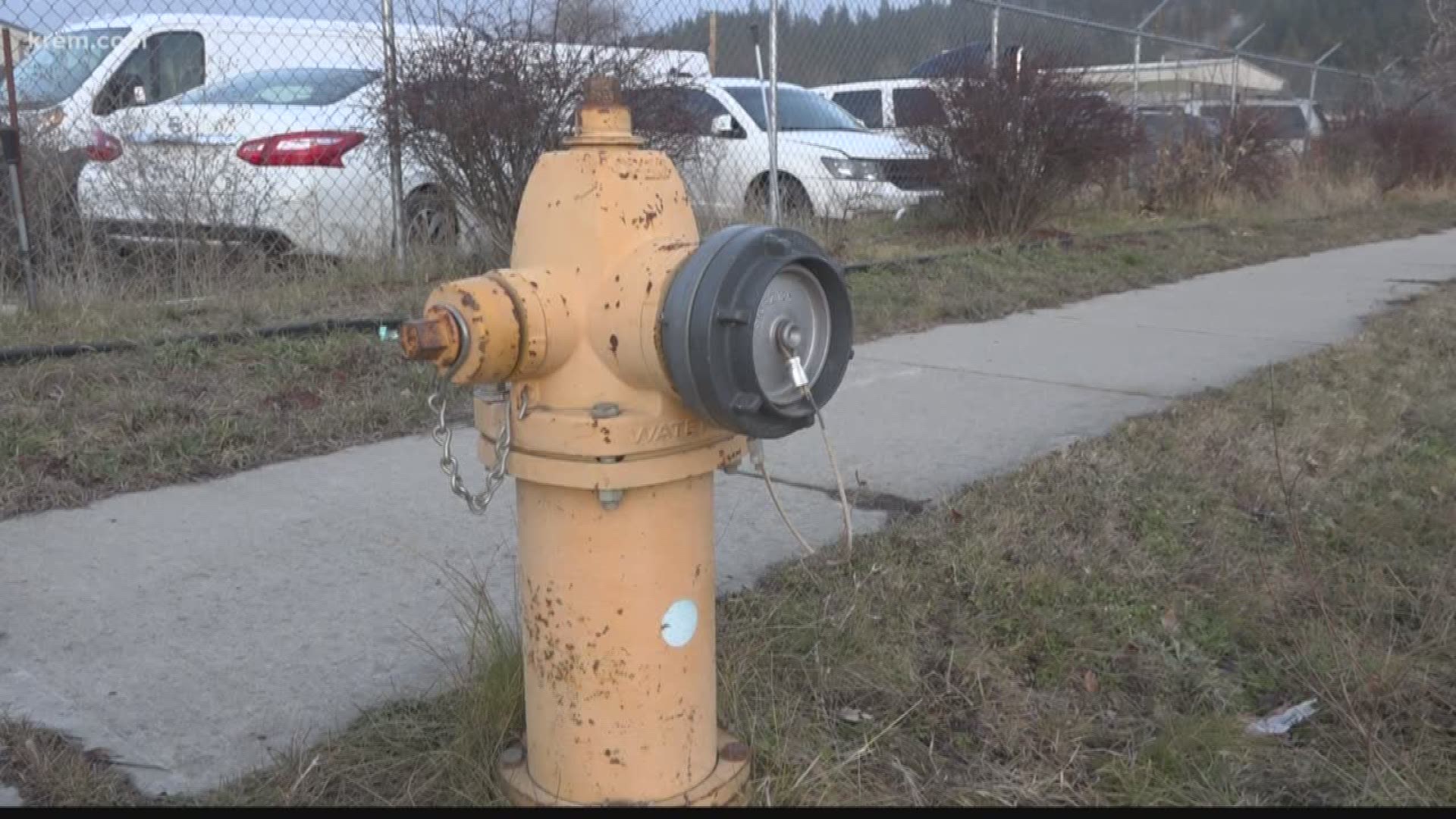SPOKANE, Wash. — About five months following an E.coli water contamination in the Hillyard neighborhood, Spokane city leaders are planning to implement new hydrant policies.
In July, people living in the area were advised to drink bottled water after a hydroseed truck hooked up to a fire hydrant, and some of the material backwashed into the hydrant, spreading E. coli into the system.
Concerns about a possible repeat incident surfaced when a KREM viewer sent a picture of what she said was a driver pumping water from a fire hydrant into a tank in his truck.
Spokane City Council approved a resolution in November to update its Hydrant Permit Program.
The program would require companies to register for a permit for a specific hydrant in the city.
The permit holders will require a $1,500 refundable deposit for the equipment said Marlene Feist, spokesperson for the city of Spokane.
Companies are already required to have permits to pump water from the system, but the updated program would assign one hydrant to each company wanting to use the system.
"The heart of the proposal is really to narrow down where companies will be using hydrants to access water," Feis saidt.
She said crews would also install meters on the city's 7,500 hydrants to track when companies use a hydrant and how much water they pump.
"This would give us a precise way to track, if something did happen again, who exactly was responsible," Feist said.
She said companies that use a hydrant not assigned to them could face a $1,000 fine each time they pump water from it.
Additional fines will be issued for those who violate the Hydrant Permit Policy or for any damage that is done to city equipment or infrastructure.
If a permit holder wants to use a different pre-approved hydrant, they will be required to request the change at least 24 hours in advance.
The program would also require companies to use a city-provided device while pumping to prevent water from the trucks from backwashing into the hydrant and water system.
Feist said city leaders have also had discussion around installing locks on the hydrants to keep users not legally using the permit program from accessing the water. The locks would require a city-issued key.
Feist said the updated program will likely go into effect in March at the beginning of construction season. She said the locks will require further conversation, since city leaders have to consider if the devices might slow down fire crews accessing the hydrants during fire responses.

